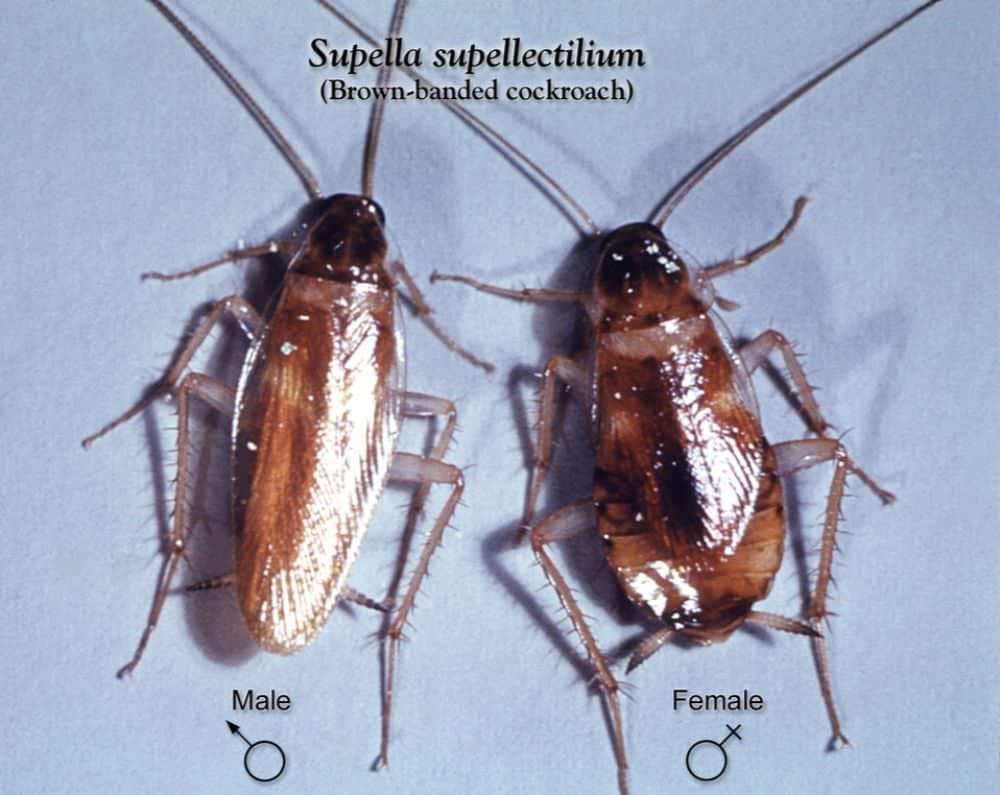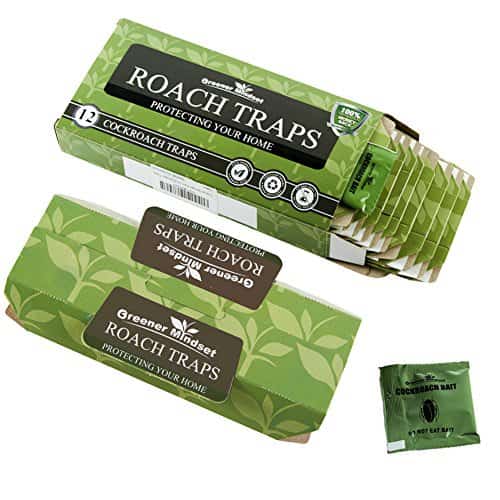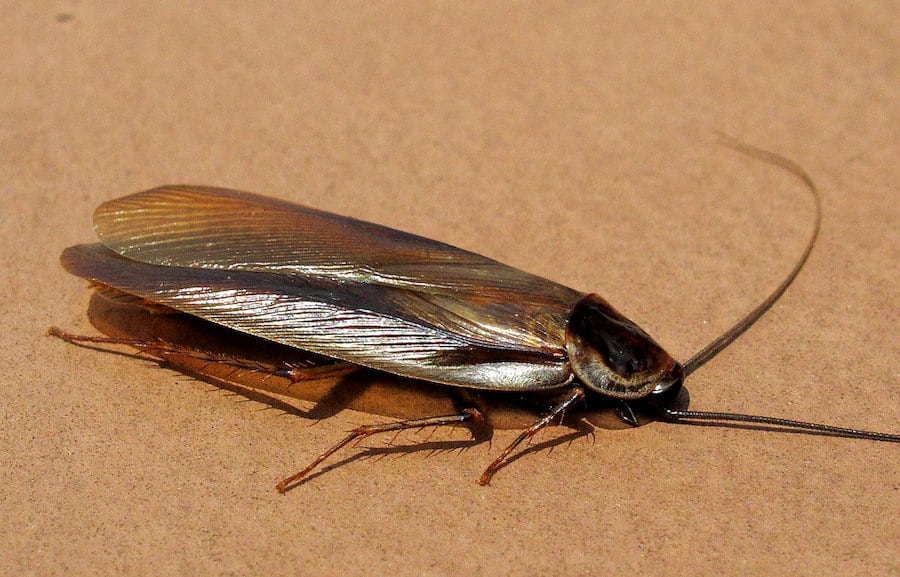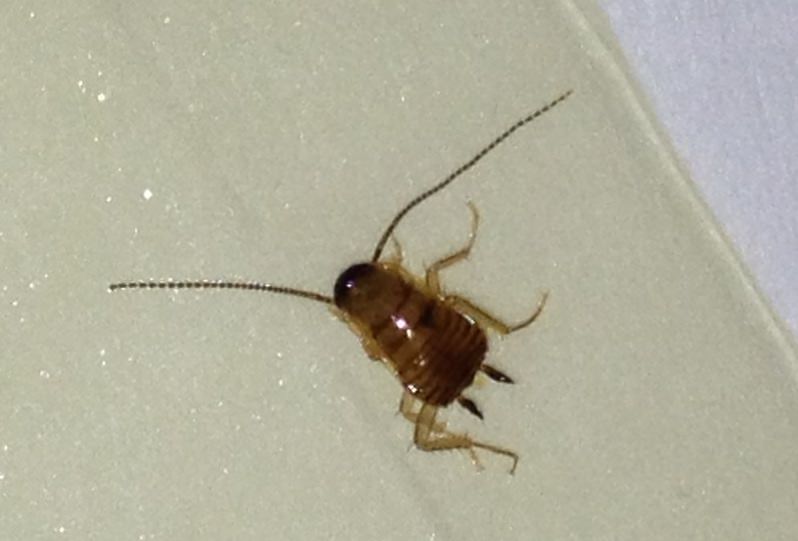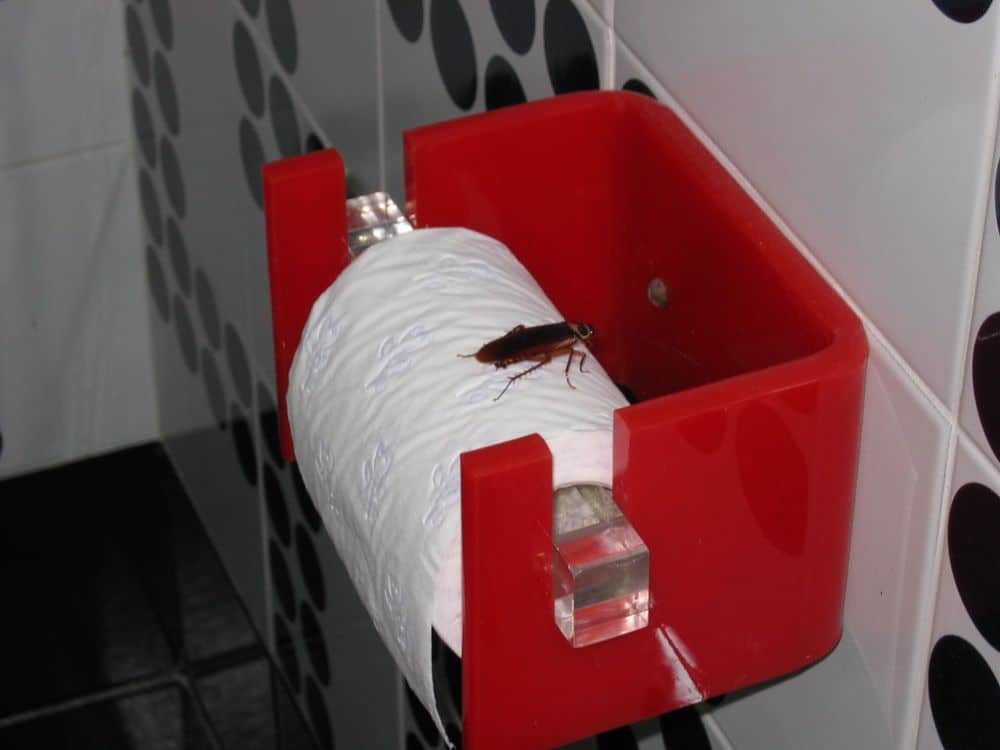Do Roaches Bite?
With over 3000 species of cockroach worldwide, it’s likely you have seen one close up at some point. Roaches are omnivores, so they will eat both plants and meat. Humans are not a favored source of food for them; even so, it is still possible to get roach bites.
Unlike some other insects, these pests do not feed on humans and they don’t rely on us for their lifecycle. Roaches have plentiful supplies of food. Still, if you get a roach bite then you will want to know what the implications are. They are, after all, known for carrying bacteria and spreading disease.
Do Cockroaches Bite Humans?
As cockroaches have many food sources available to them, a human would not be their first choice for a meal. The chances of being bitten by a roach are rare but not completely unknown. They are shy creatures that would not normally dare to venture near a human that is awake and moving around.
The most common culprits for biting humans are the American or Australian cockroaches. The German cockroaches may also bite, but this is not as common as with the other two species.
How Do Cockroaches Bite Humans?
A roach is capable of biting a human. However, when we say bite, this term is used quite loosely—as in reality, it is more of a pinch. It is claimed that the bite of a cockroach is 50 times more powerful than its body weight.
Even with such great power, they are still quite tiny insects compared to humans. Our skin is strong, and made for protecting us, so such a small creature would struggle to break through.
To help understand how a roach would bite or pinch the skin, knowing about their mouthparts will help. Their mouths are made up of five different components, namely:
- Mandibles are the strong jaws with cutting power
- The labrum is the top lip
- The labium is the lower lip
- Maxillae is used for holding and tasting food
- Hypopharynx is where salivary glands are
As you can see from this list, there are no razor sharp teeth that will rip your skin off as they devour you. This is why their bites will resemble more of a pinch, and they use their mandibles to do this.
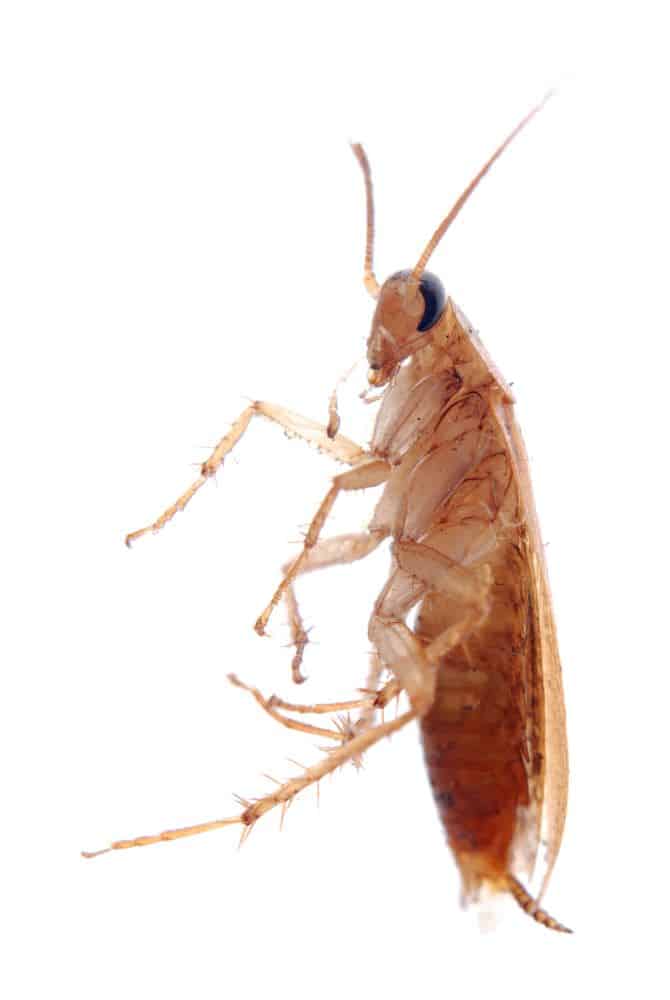
While they can’t take a chunk out of you, if a big one bites you, then you will certainly feel the pinch. If a smaller one decides to have a taste, their pinch may not even get your attention.
Why Do Cockroaches Bite Humans?
A roach will not bite you because it’s an aggressive beast that wants to eat you. They won’t even attempt a bite if they feel threatened, they will simply run away and hide from you. They’re much more afraid of you than vice versa—really!
They are only likely to look to humans as a food source when an infestation is at catastrophic levels. If food sources become scarce, this is when they would turn to you as a food source.
However, cockroaches are experts in finding sources of food. It would need to be a widespread epidemic to result in them trying to feed on a human. This is a good reason to try and eliminate cockroaches when they are first discovered.
If they bite you, then chances are it will happen at night when you are asleep. A sleeping human body is one that they may risk biting. They like to feed on the calloused and dead skin, or eyelashes and fingernails.
They will look for food residue on the skin on your hands and feet and possibly even around the mouth. If they bite the skin, it’s more than likely this will happen by accident.
With a roach bite, chances are you will wake up and discover the bite the next morning. They will have fed on you while you were sleeping and not moving around. You are not likely to have felt them biting you.
However, there’s no need to panic or stay awake at night in fear of being bitten. A roach would much rather trawl through the garbage to find food than feed on a human.
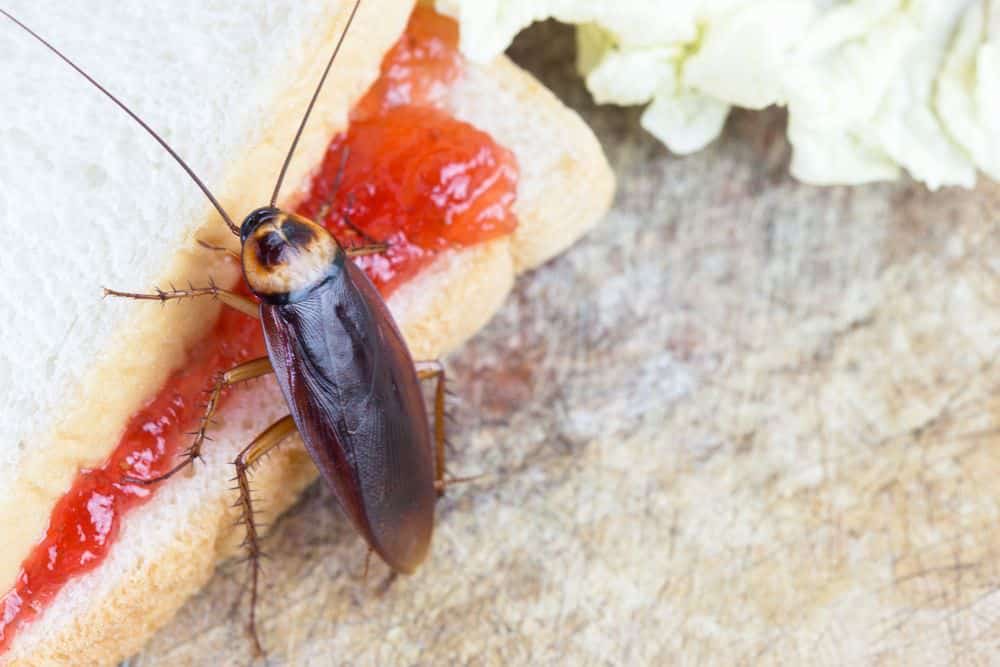
When Will a Roach Bite You?
It was already mentioned that cockroaches are shy creatures who only like to come out after dark. They are not naturally aggressive, and whenever possible, they will steer clear of humans. Night time is when they leave their hiding spots and scavenge for food.
While they are not such picky eaters, they would much rather opt for sugary or starchy foods first. With a bad infestation, food supply may be in shortage, therefore, increasing your chances of becoming their tasty alternative.
If you are sound asleep and not moving about, this makes you appear like any other object in the room. When there is nothing else appetizing to feed on, then your dead skin or food residue may attract them.
Where Is a Cockroach Most Likely to Bite?
If they have landed on you by mistake and are biting in defense, the bite could be anywhere on your body. However, this situation is extremely rare. If they are choosing you as a food source, then these are the areas they would target:
- Nails
- Fingers
- Feet
- Hands
- Eyelashes
- Mouth
- Nose
Most of these are the parts of the body are where the roaches are more likely to find sources of food.
What Do Cockroach Bites Look Like?
If you get bitten by a roach, it will look a lot like a mosquito bite. Some bites may occur in clusters, but this is not always the case.
The bites are a little larger than mosquito bites. There will be some redness around the site of the bite, and you may also develop a rash, particularly if you find the bite to be itchy. Swelling may be clear as well, especially in sensitive areas, such as near the eyes.
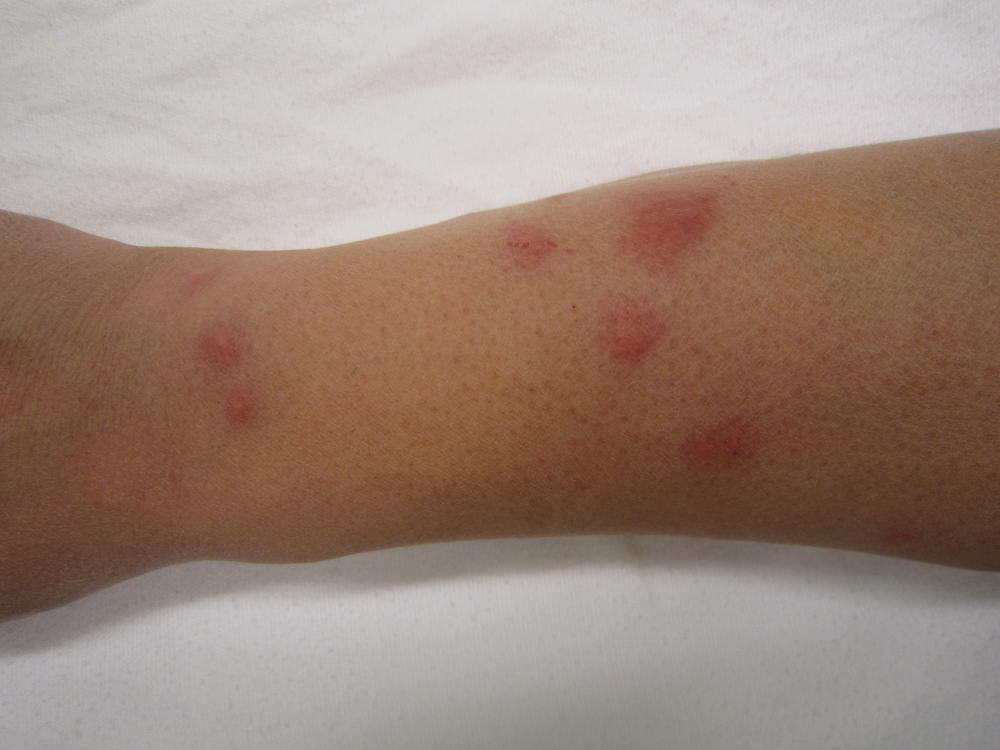
If you are allergic, the symptoms appear when the white blood cells attack the allergens of the roach. It’s usually the allergens that cause the area to itch, as with bites from other insects.
Some people don’t even realize when a roach has bitten them and have no symptoms. There are those who just say they feel the urge to scratch. Others say the bites are painful. It all depends on the severity of the bite and the individual person’s reaction.
Roaches use their mandibles to bite. Unlike mosquitoes, they inject nothing into the skin. The mandibles are the jaws of the roach and are like blades, which they use to shred their food. This is why for some, especially young children, the bites may be painful, as they can pack quite a powerful punch.
Do Cockroaches Bite Pets?
As well as keeping ourselves safe, we also want to keep our beloved pets safe too. Where pets are concerned, it’s much the same as with humans. Roaches will normally stay away from them, as they view larger animals as predators.
Pets are larger and move around more, so chances are the roaches will steer clear. It’s important to remember, however, when it comes to feeding, that roaches are rather indiscriminate. When the need arises, they will feed on whatever they can.
If your pet is in an area where the infestation is bad, then chances are they will become a potential food source. If your pet is bitten, it will need treating to prevent the risk of infection. You are advised to seek advice from a veterinarian for the best course of action on treatment.
Pets are also at risk through the sharing of water and food bowls. If roaches feed on the pets’ food, then they are contaminating the area by leaving bacteria behind. When your pets then eat from it, they can pick up the bacteria.
Can Roach Bites Spread Disease?
Cockroaches run around in unsavory places, like garbage cans and sewers. The roaches find their prime food sources in such areas. It is easy for them to pick up bacteria and then spread them around when invading our home or workplace. Bacteria and diseases that cockroaches can contaminate places with include:
- Dysentery
- Cholera
- Gastroenteritis
- Giardia
- Listeriosis
- Escherichia coli
- Streptococcus
- Poliomyelitis
- Staphylococcus
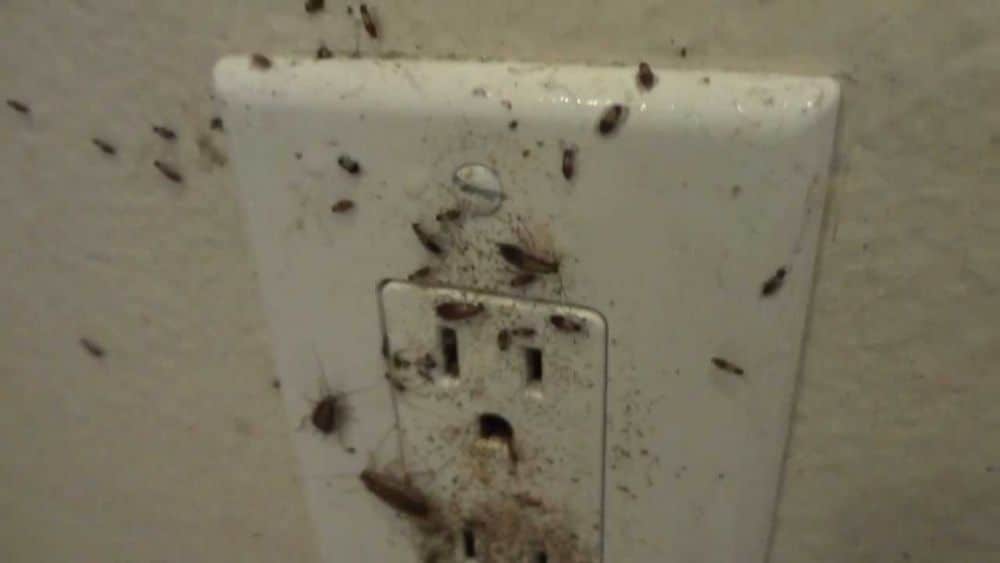
This isn’t going to be likely through biting you, though. It happens when they come into contact with work surfaces and food prep areas. They carry the germs on their bodies, and it may also be in their waste. As they run around homes, restaurants or factories, these germs can transfer to many things.
Roaches transmit diseases indirectly. It happens through contamination or consumption. They may go inside drawers or cabinets and find food packages that are not properly sealed. Any areas they come into contact with, they will have contaminated.
Humans then come into contact with contaminated surfaces or prepare food on them. This is how they transmit the harmful pathogens to humans. They can also transmit them through inhalation and open wounds.
People who suffer from asthma have reported experiencing allergic reactions to cockroach bites. It is not always a bite that causes these reactions, it could be their feces or the shedding of their exoskeleton. The reactions can cause severe difficulty with breathing. If this happens, medical help should be sought immediately.
Despite all this, roaches are still not considered to be vectors for disease and viruses. They play a supplementary role, but not a primary one.
Having a roach infestation means you will need to take some precautions. You want to do all you can to prevent the spread of any diseases or viruses. Doing so involves sanitizing all areas they may have come into contact with. If it’s not something you can sanitize, then you need to replace it.
Is a Cockroach Bite Dangerous?
The simple answer to this is no. From the information already covered, you are aware that cockroaches don’t inject us with disease or venom when they bite.
The biggest risks roaches pose to us are the pathogens they carry on their bodies, as mentioned above. You are more at risk of sickness by eating food that the roaches have been in contact with.
However, if you are prone to allergies, a cockroach bite can sometimes cause a reaction via proteins in its saliva. Also, if a bite leaves an open wound and is left untreated, the area could become infected.
How to Prevent Cockroaches From Biting You?
The best way to prevent a roach from biting you is to eliminate cockroaches and avoid an infestation. To do this, you need to:
- Keep your home clean, pay attention to kitchens, floors, counters, sinks, and stoves
- Don’t overfill garbage cans, keep them properly sealed
- Make sure all food containers and packagings are sealed
- Stop cockroaches from accessing water sources, by sealing any leaks
- If you see any roach eggs, treat them with an insecticide and remove them
- Don’t let laundry, dirty dishes, or newspapers and magazines pile up; these are all food sources
- If you have an infestation, seek expert help from pest control
An important thing to remember is that the cockroaches will only bite you because they’re looking for food. If you eat in the bedroom, particularly in bed, inevitably there will be crumbs left behind. This is an open invitation for roaches to join you in bed.
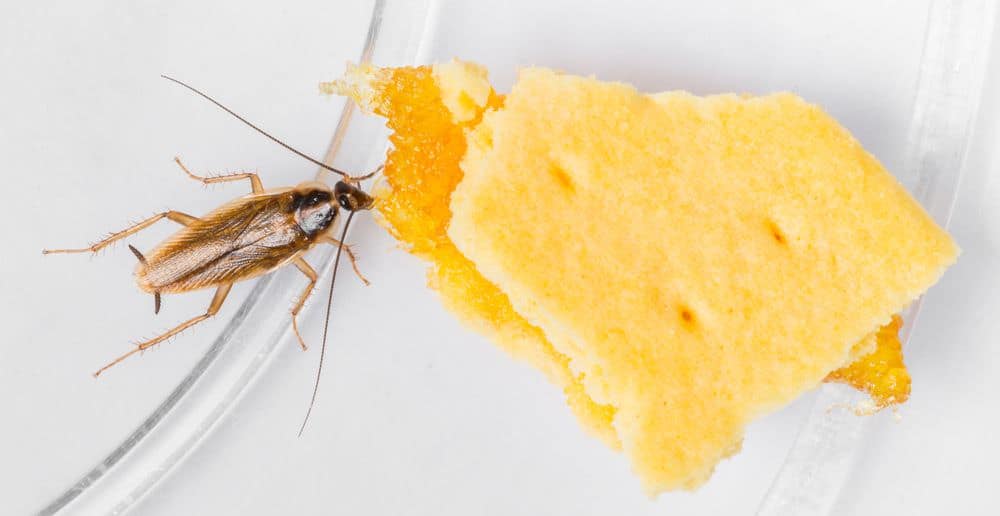
Remember to wash your hands and face thoroughly after eating food, to reduce the risk of attracting cockroaches.
How to Treat Cockroach Bites?
If you do have the misfortune of being bitten by a cockroach, the first thing you need to do is clean and disinfect the area. Use soap and water first, but follow this up with using rubbing alcohol or an antiseptic lotion or cream. Using soap and water alone will not be sufficient to remove any potential germs.
Don’t press the wound and only rub it when applying lotions, etc. If there is swelling, use ice to help relieve this. Avoid scratching, as this can introduce infection to the wound.
Your pharmacist or doctor may advise using a hydrocortisone cream to relieve itching and inflammation.
A bite from a cockroach will not be life-threatening, but it could cause an allergic reaction or infection. If you have difficulty breathing, or your glands become swollen, you should seek medical attention immediately. If the bite area becomes infected, you should also consult your doctor. Signs to look for are:
- Pus and inflammation, particularly if the inflamed area becomes larger
- Pain and redness
- Swollen glands or difficulty breathing
Roach bites will usually heal on their own within a few days, and will disappear within a week. While they are healing, keep an eye on them to make sure that they don’t become infected. The main problem you may have is when roaches bite children. Stopping a child scratching can be a difficult task, but is essential to avoid further complications.
You can buy over-the-counter creams to relieve the itching, or you could opt for one of several home remedies, for example:
- Elevate the area to keep the swelling to a minimum
- Apply a small amount of honey on the bite to relieve the itch
- Use lavender essential oil in a carrier oil and apply to the bite area
- Reduce itching and swelling by applying calamine lotion
You can also apply aloe or essential oils, such as:
- Eucalyptus
- Tea tree
- Basil
- Peppermint
- Rosemary
- Witch hazel
A doctor or pharmacist may also recommend antihistamines, in the form of cream, medicine or tablets. This will help to relieve the itching and reduce swelling caused by the bites.
Summary
As a recap, cockroach bites are rare but not unknown. If you get a bite from a roach, it’s nothing to panic about. Kept clean, it will disappear within a few days. In rare cases, reactions could occur and you will need to consult a doctor for treatment.
The main thing to remember is that if the cockroaches are biting humans, then chances are the infestation is bad. If you want to prevent roach bites, then you need to act immediately once you have discovered their presence in your home. You also need to take measures to prevent any future infestations from happening.

